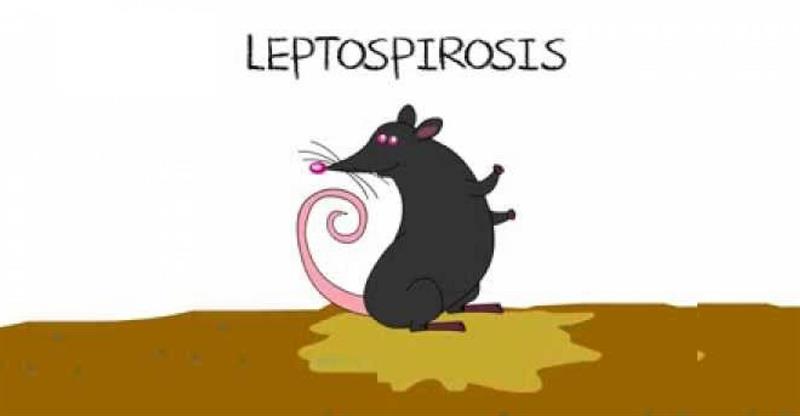ANYONE EXPOSED TO RAT-CONTAMINATED WATER AND SOIL IS AT RISK OF CONTRACTING THE DISEASE.
 The Ministry of Health and Wellness has noted a reported increase in the number of cases of Leptospirosis.
The Ministry of Health and Wellness has noted a reported increase in the number of cases of Leptospirosis.
Although increases in the number cases of Leptospirosis is not unusual after periods of heavy rains or flooding, it remains an issue of concern to health authorities.
Leptospirosis is a disease caused by bacteria found in some animals, which include rats, cattle, pigs, horses and dogs. Persons can become ill if they are in contact with the urine, water, food or soil through breaks in the skin, mouth, eyes or nose. Symptoms can range from a mild, flu-like illness with high fever, chills, headache, muscle pains, red eye, sore throat and occasionally rash which may worsen with time. In the more severe phase the disease can affect the liver causing jaundice (which is dark urine and the yellowing of the white part of the eye and the skin), and anaemia. If left untreated the disease can affect organs such as the brain, kidneys, lungs, and other internal organs. In some instances, this may result in death.
This condition can be treated effectively with antibiotics if diagnosed on time. Seeking medical care early when these symptoms are noticed can prevent the disease from worsening. Persons at greatest risk of contracting Leptospirosis are farmers and agricultural workers, sanitation workers and sewer workers. However, anyone exposed to rat contaminated water and soil is also at risk of contracting the disease.
The Ministry of Health has an established Rodent Reduction Program that will be further enhanced to respond to the current increase in Leptospirosis. The ministry will also be working with a number of agencies including the Ministry of Agriculture, farmer organizations, and local government in order to heighten awareness of the disease to persons most at risk of contracting the disease.
The Ministry of Health advises all to take the following measures to reduce the risk of becoming ill with Leptospirosis: wear protective clothing, shoes, gloves to avoid coming into contact with contaminated surfaces, soil, water source or food; avoid contact with surfaces and water sources that may be contaminated with rat urine; keep your home and surroundings free of garbage; avoid leaving food where rats can get to it; keep food in covered containers; cover opened wounds properly.
It is important to visit your nearest health facility if there is any suspicion you might have been exposed to Leptospirosis. For further information, please contact the acting National Epidemiologist, Dr. Gemma Chery, at telephone numbers 468.5325 and 285.4773.